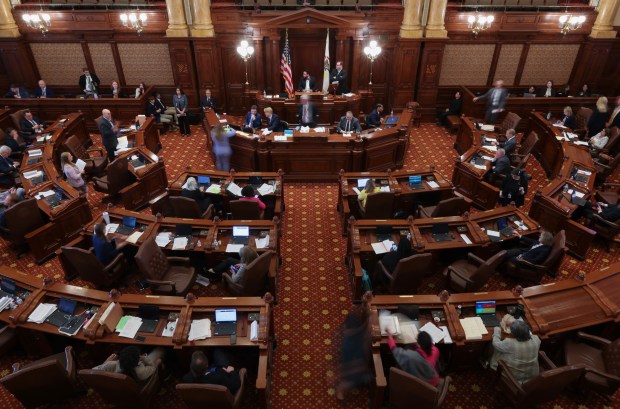As the eighth such business is scheduled to open in the village, Lincolnwood has banned future smoke and vape shops and will let existing licenses expire as each shop leaves.
The Village Board unanimously approved a rigorous license ordinance on July 16 that also inflates the fee for such licenses from $150 to $1,000 a year and prohibits their transfer to other owners or property.
Trustees also directed the Plan Commission to launch a public hearing process to amend Lincolnwood zoning code to prohibit tobacco retailers in all zoning districts. The ban will affect only stores that get 80 percent of their revenue from the sale of tobacco and related products.
“The idea is that this is not a business that we look favorably upon, and we would like to reduce the numbers we have,” Village President Jesal Patel said. “Zoning is great, but licensure will make sure what we have doesn’t increase. Allowing no change in ownership or relocation will do that.”
The ordinance currently restricts the number of licenses to eight, but reduces that number each time a business closes for at least 30 days.
Trustees arrived at a consensus for the ordinance after discussions at their May 7 and June 18 Committee of the Whole meetings.
Doug Hammel, the village’s manager of planning and economic development, said Lincolnwood currently contains “substantially more” tobacco and vape shops per capita than other surrounding communities. In comparison, the city of Evanston has only one, Hammel said.
“That is a clear directive that they are not allowing smoke shops,” he said of Evanston. “It might have been one that was longstanding and existing, and they just haven’t allowed anymore.”
The Board considered requiring buffer zones between such shops and schools, parks, religious institutions and other establishments, but ultimately settled on a complete ban. Even the most restrictive buffer would leave Lincolnwood with at least five smoke and vape shops, Patel said.
“My assumption is that in the towns where they don’t exist, they’re not allowed,” he said. “These businesses are one of the most predominant uses today.”
Hammel said Lincolnwood is permitted to ban smoke and vape shops moving forward because they do not enjoy the same Constitutional protections of some other businesses.
Trustees Chris Martel and Atour Sargon said they supported increasing license fees and restricting the number of licenses.
“It makes more sense to me to implement licensure and raise the fees,” Martel said during discussion. “Right now, it’s only $150 a year. That should be higher, and there should be a limit on the number of licenses.”
Trustee Jean Ikezoe-Halevi said staff should alert village officials in the future if any particular types of business begin to proliferate in such large numbers as the smoke and vape shops did recently.
“I don’t want the reputation of being a tobacco town,” Ikezoe-Halevi said. “We have way too much stuff going on here.”
Patel said Board members need to speak out when officials see undesirable development.
“We all have to do our part,” he said. “In a little town like this, we all spend as much time (here) as each other. We don’t know and staff doesn’t know what we like or don’t like until we speak up.”
For example, Patel said, the Board became aware of the large number of smoke and vape shops in the village only after noticing how many of them were using attention-getting lighting devices that were eventually banned.




